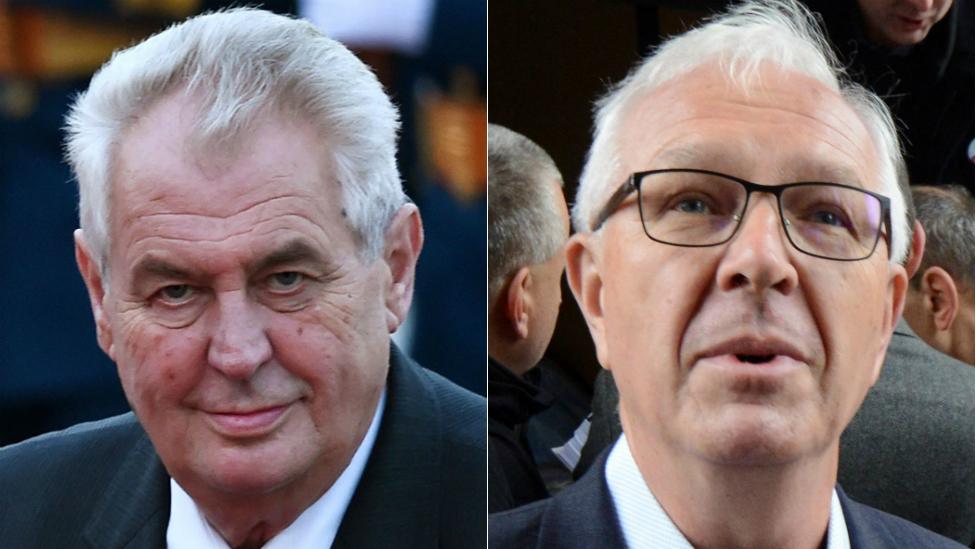Milos Zeman vote settles Czech presidency - or does it?
- Published
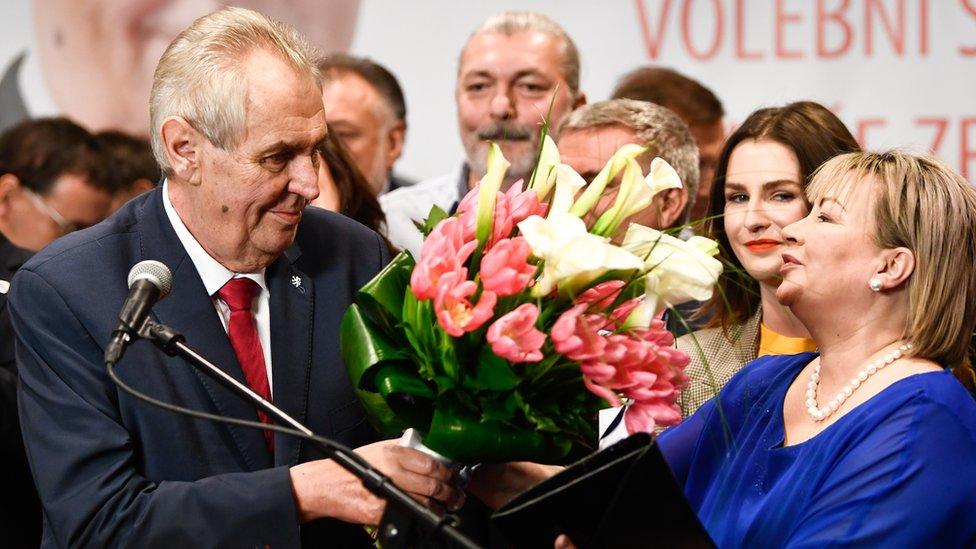
Milos Zeman won a second term in office following a tight vote against rival Jiri Drahos
In the end the difference between victory and defeat was just 150,000 votes, a margin re-elected Czech President Milos Zeman described as "relatively" close.
The shouts of "Long live Zeman!" echoed through the corridors of the rather drab Top Hotel, the president's election headquarters in Prague's grey southern suburbs, as his supporters clapped wildly.
"This is my last victory," said the 73-year-old. He was flanked by his wife, daughter, close aides and several politicians, including Tomio Okamura, leader of the far-right SPD party.
Mr Okamura is a key ally in Mr Zeman's ideological battle against what he sees as the creeping Islamisation of Europe.
"In my next term I want to be less arrogant and more humble," he told the crowd, adding that those who disliked him were unlikely to change their minds.
Instead, he said he would fight for what he called "active citizenship", a greater involvement of ordinary people in influencing politics and society.
He said he had come to the conclusion that "some journalists and politicians" possessed substantially lower intelligence than "ordinary people".
This is why many people - including Mr Zeman himself - continue to make comparisons with US President Donald Trump.
Across town, inside the equally drab Congress Centre that served as Jiri Drahos' headquarters, the atmosphere was celebratory rather than funereal. There was sustained applause as Jiri Drahos took to the stage.
"We didn't win," he said. "But we are not defeated."
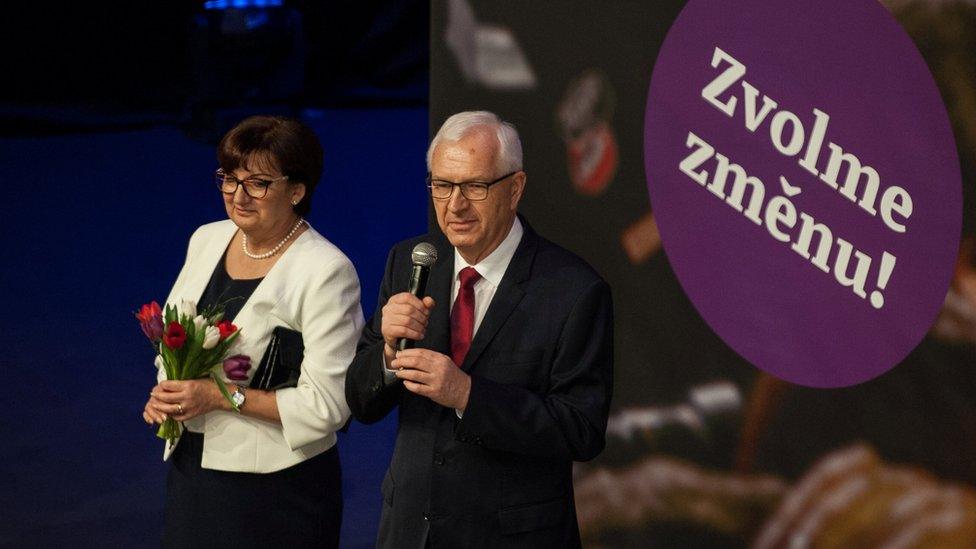
Jiri Drahos speaks after being defeated in the presidential election
"The energy created during this campaign will live on," he added. There was more applause, before he explained that he had no plans to retreat from public life.
"I will carry on," he told the crowd. Journalists immediately began wondering what exactly that meant.
Could there be another election before Milos Zeman's five years is up? The media will be watching his public appearances carefully.
Not everyone is certain the ailing president - who suffers from type-2 diabetes and walks with difficulty - is physically capable of completing his mandate.
Later, Mr Drahos told the BBC it was too soon to speculate whether he might find himself contesting the post of president again.
But he was certainly not ruling anything out, including entering parliament.
So was it right to describe this election as a battle of ideas between populism and elitism, between authoritarianism and liberal democracy, between east and west?
"I think what we witnessed was a contest between the populist, anti-establishment leanings of the large part of the population with the rest of society," said Michael Zantovsky, former Czech ambassador to London and a close aide of the late ex-President Vaclav Havel.
"And what's very funny in a way is that the leader of the anti-establishment camp was actually the leader of the establishment - the president."
- Published27 January 2018
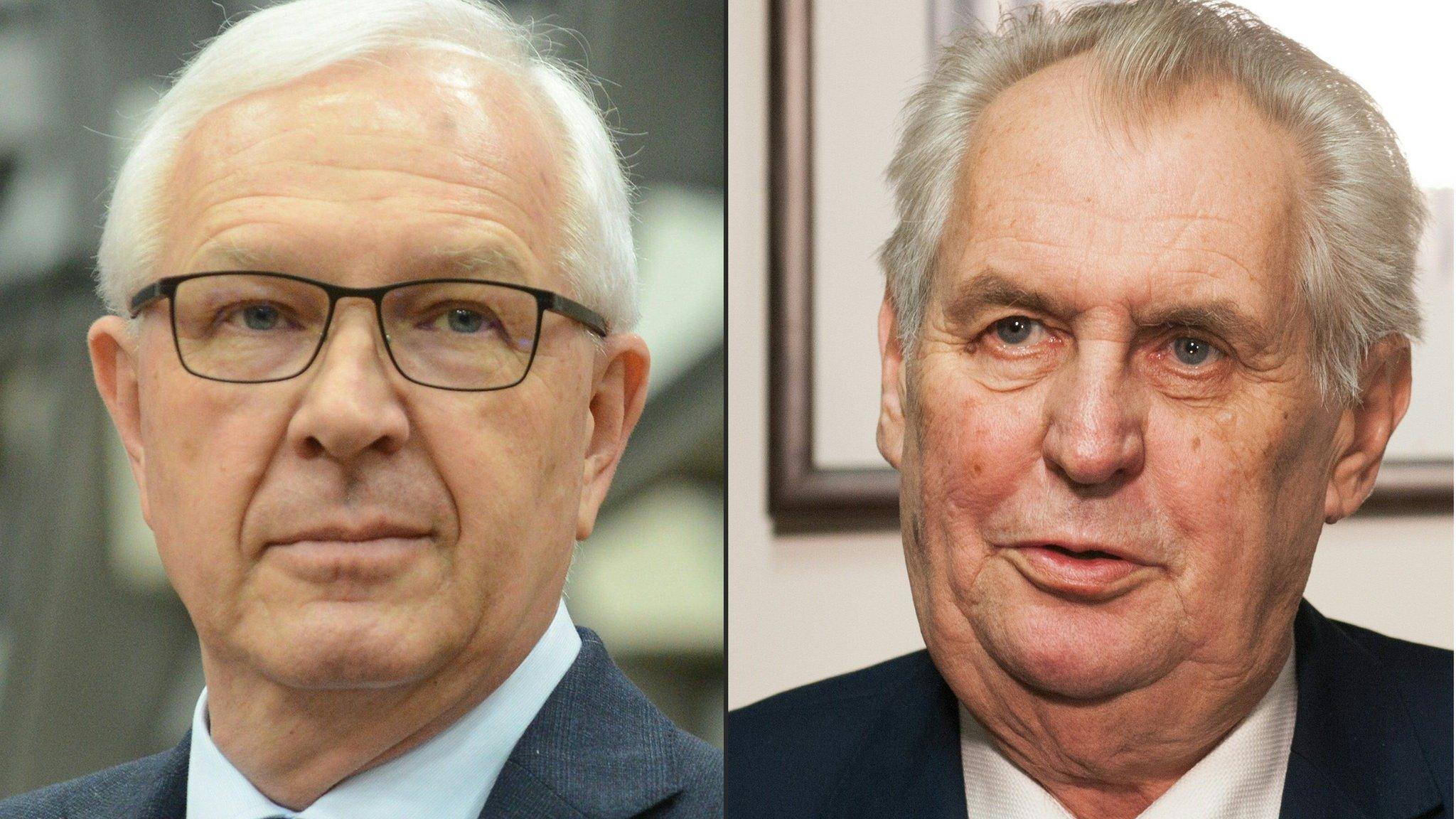
- Published10 January 2018
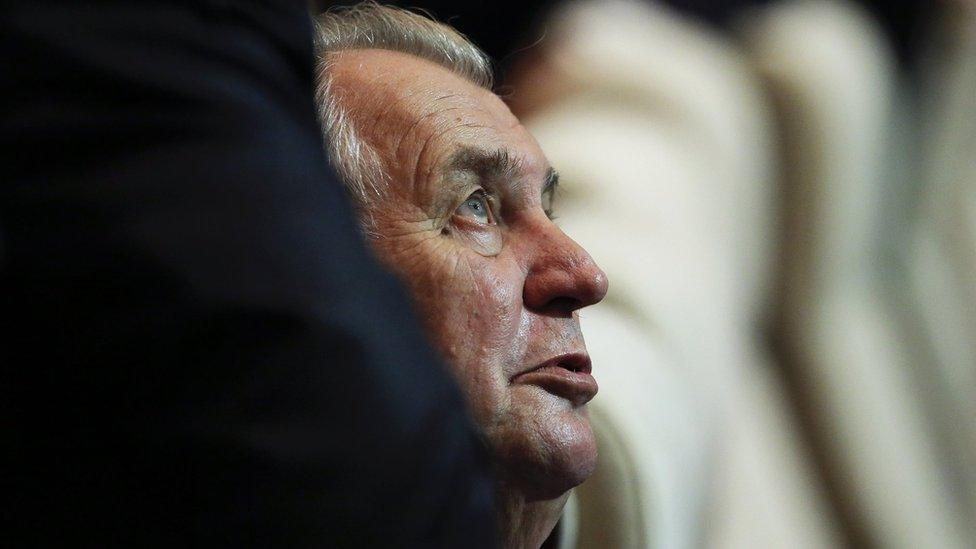
- Published19 January 2018
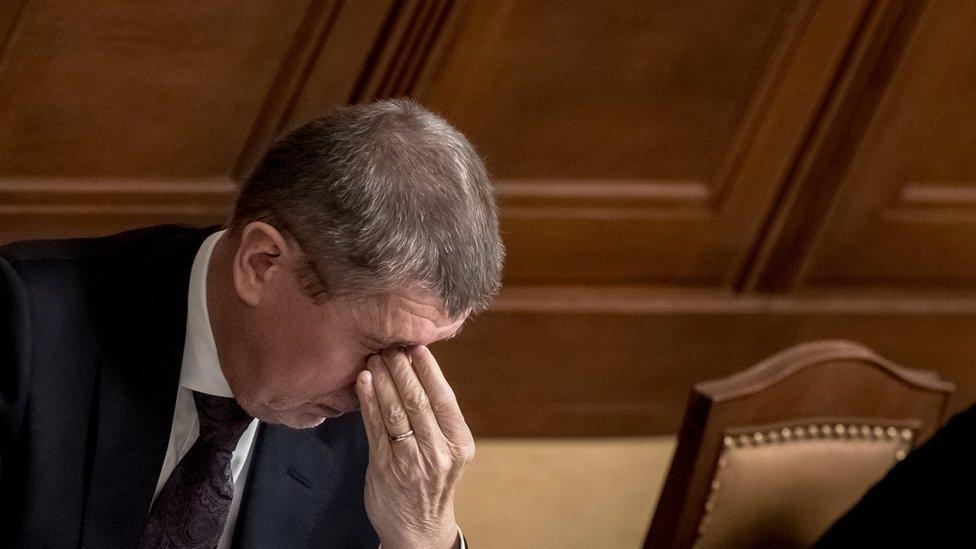
- Published13 January 2018
